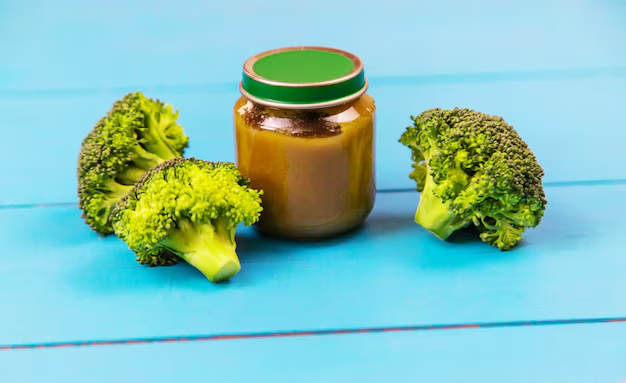Navigating Food Stamps: Can You Buy Vitamins With Them?
Millions of Americans rely on food stamps, officially known as the Supplemental Nutrition Assistance Program (SNAP), to help make ends meet. For many, ensuring access to nutritious food is a top priority, and they turn to SNAP for support. But what about vitamins and supplements? Are these considered a necessity, and can they be purchased with SNAP benefits? Let's explore this topic thoroughly to clear any doubts and provide useful insights for SNAP beneficiaries.
Understanding SNAP: What It Covers
The Supplemental Nutrition Assistance Program is designed to help low-income individuals and families buy food. But its coverage is nuanced, and understanding what you can and cannot purchase with SNAP can sometimes be confusing. SNAP benefits generally cover:
- Fruits and vegetables
- Meat, poultry, and fish
- Dairy products
- Breads and cereals
- Other foods such as snack foods and non-alcoholic beverages
- Seeds and plants that produce food for the household to eat
However, SNAP does not cover:
- Alcoholic beverages
- Tobacco products
- Vitamins, supplements, and medicines
- Live animals (except shellfish, fish removed from water, and animals slaughtered prior to pickup from the store)
- Prepared foods and hot foods
- Pet foods, cleaning supplies, paper products, or cosmetics
Can You Buy Vitamins With SNAP Benefits?
Why Vitamins Aren't Covered
When it comes to vitamins and supplements, SNAP does not cover these items. The rationale is that these are not considered foods but are categorized as "supplements." Vitamins and minerals typically have a Supplement Facts label instead of Nutrition Facts, which are the qualifiers for SNAP eligibility.
Given SNAP’s primary focus on providing food, its framework excludes items that fall outside the “food” category, as legislated by federal guidelines. This might be frustrating for those who see vitamins as essential to their dietary needs but reflects a fundamental aspect of how SNAP is structured.
Exploring Alternatives for Acquiring Vitamins
While SNAP does not cover vitamins, there are alternative ways to gain access to them:
Local Food Banks: Some food banks offer vitamins as part of their services. It's worth inquiring with local resources about available help.
Health Clinics: Certain clinics might provide free vitamins as part of public health initiatives aimed at improving community nutrition.
Government Programs: Programs like Women, Infants, and Children (WIC) offer specific nutritional support, and beneficiaries can ask about available resources.
The Importance of Nutrition and Where Vitamins Fit
Balancing Diets Within SNAP’s Framework
Even without vitamins included in SNAP's coverage, beneficiaries can optimize their nutritional intake:
Diverse Food Choices: A wide variety of fruits, vegetables, grains, and proteins can cover many nutritional bases.
Education: Utilize available resources like nutrition workshops or informational pamphlets which many community centers or SNAP offices provide.
Planning and Preparation: Budgeting and meal planning can make SNAP benefits stretch further, focusing on nutrient-dense choices.
A Look at Nutrition Assistance Programs
Beyond SNAP, there are other nutrition-focused programs supporting various populations:
WIC (Women, Infants, and Children): Provides nutritional benefits along with access to health screenings, breastfeeding support, and personalized nutrition education.
National School Lunch and Breakfast Programs: Ensure children receive balanced meals throughout the school day.
Elder Nutrition Program: Available to older adults, often including meal home delivery or congregate dining.
These programs illustrate a broader commitment to nutrition, sometimes filling in gaps that SNAP cannot.
Practical Tips for SNAP Beneficiaries
Here's a concise list of practical tips that SNAP recipients can consider:
🛒 Prioritize Nutrient-Dense Foods: Focus on whole grains, lean proteins, and diverse fruits and vegetables to maximize nutrient gain.
📚 Utilize Community Resources: Seek out nutritional workshops or assistance programs that offer complementary services to SNAP.
🗓️ Plan Meals and Budget: Create meal plans that utilize affordable, in-season produce and sales to stretch benefits further.
👨👩👧👦 Leverage Other Programs: Explore eligibility for other assistance programs like WIC or child nutrition schemes that may cover different needs.
The Broader Picture of Food Assistance and Nutrition
Addressing Nutritional Education and Awareness
Building nutritional literacy is key as it empowers individuals to make informed choices within SNAP’s limitations. Educational outreach can increase the understanding of nutrition labels and daily dietary requirements.
Advocacy and Policy Changes
Ongoing discussions around potential expansions or adjustments to SNAP reflect a recognition of changing nutritional landscapes. Communities and advocacy groups often lobby for broader coverage of nutritional items, which could someday include vitamins and supplements.
Efforts to refine these programs ensure they continue addressing the evolving needs of those they serve.
Embracing Supportive Networks
Connecting with local networks, advocacy groups, and support systems can offer additional insights and resources beyond merely understanding SNAP limitations. These communities often support educational programs and provide guidance tailored to unique individual circumstances.
Navigating the complexities of SNAP can sometimes be challenging, especially when uncovering what is included and excluded within its guidelines. By utilizing available tools, resources, and programs, beneficiaries can aim for a balanced and nutritious diet. Though you cannot purchase vitamins with food stamps, exploring other services and strategizing purchases ensures health remains a priority. These mindful steps foster an environment where SNAP benefits effectively contribute to the overall wellness of their recipients.

Related Topics
- Am I Eligible For Food Stamps
- Are Food Stamps Being Cut
- Are Food Stamps Federal Or State
- Are Food Stamps Frozen
- Are Food Stamps Funded By Taxpayers
- Are Food Stamps Going Away
- Are Food Stamps Income Limits
- Are Food Stamps Paused
- Are Illegal Aliens Eligible For Food Stamps
- Are Illegal Immigrants Eligible For Food Stamps
